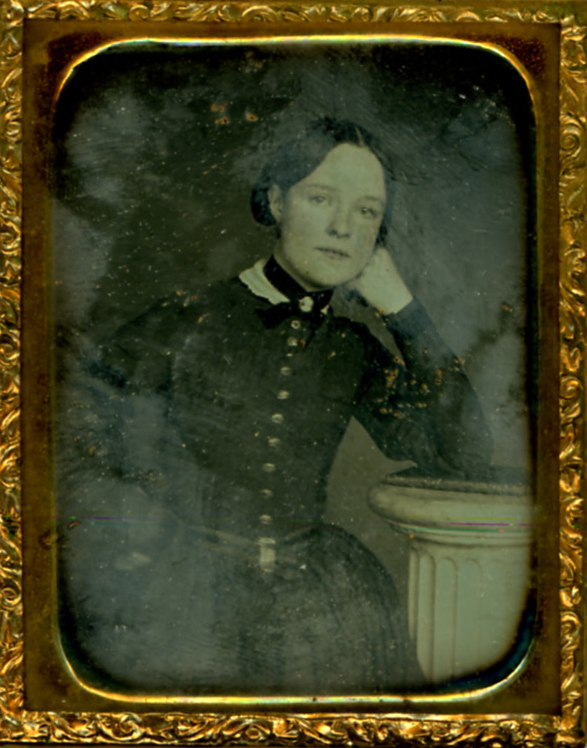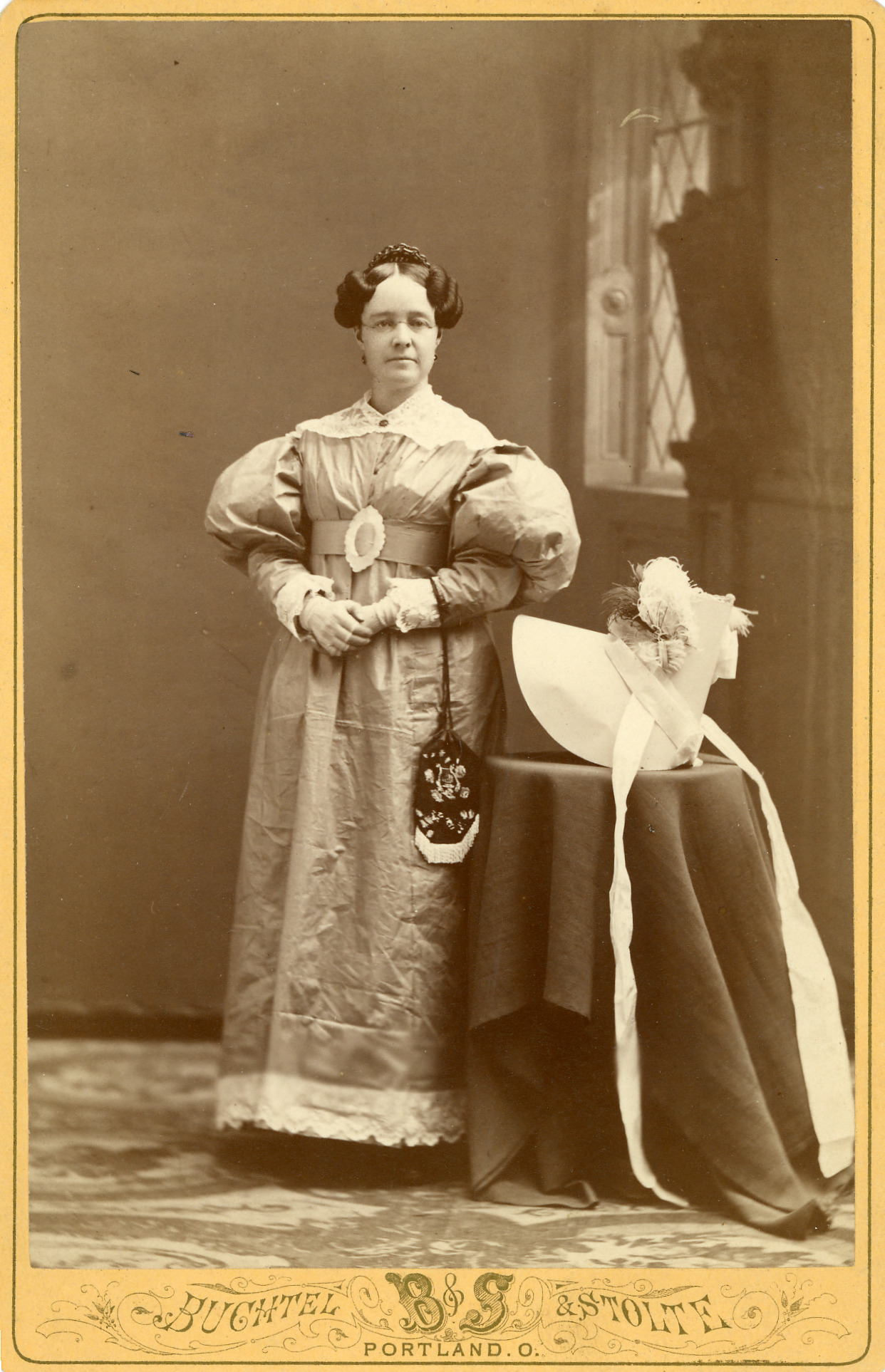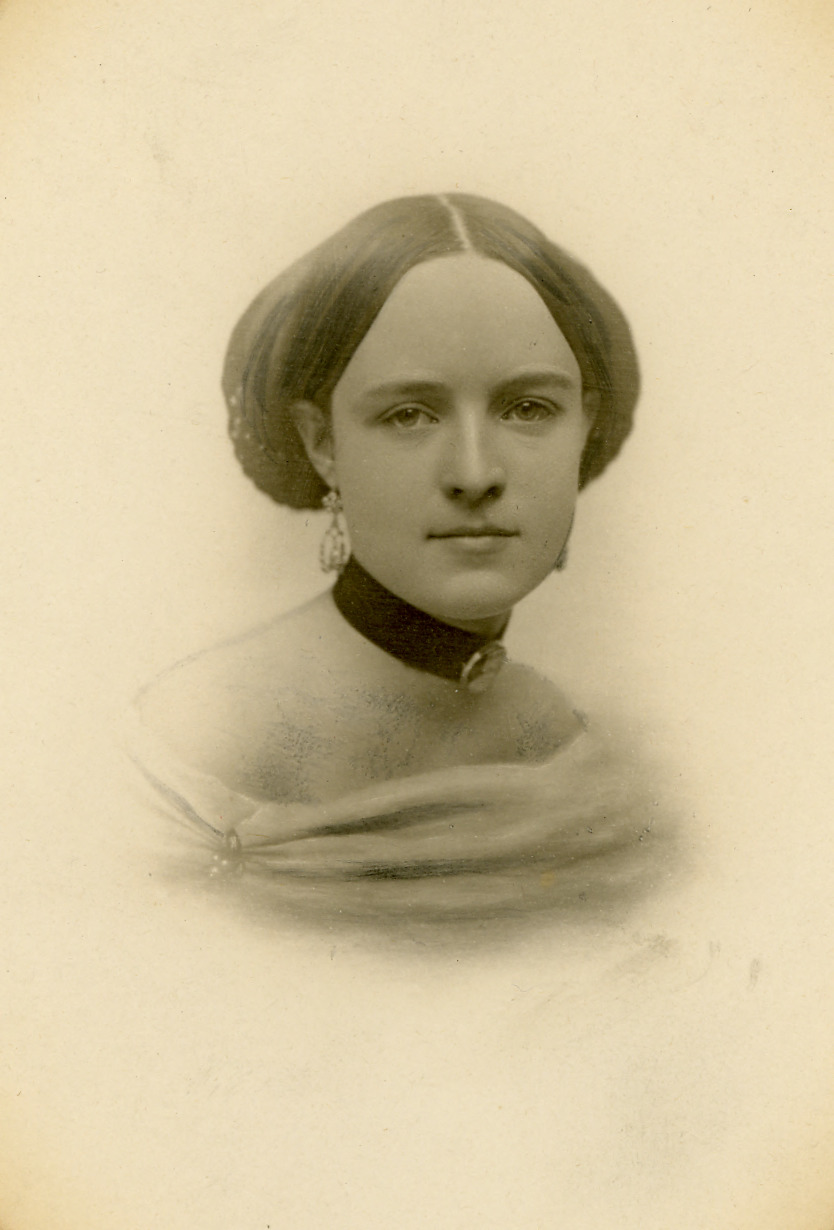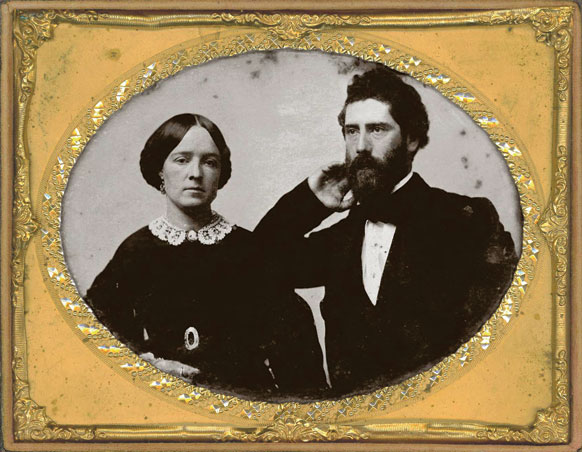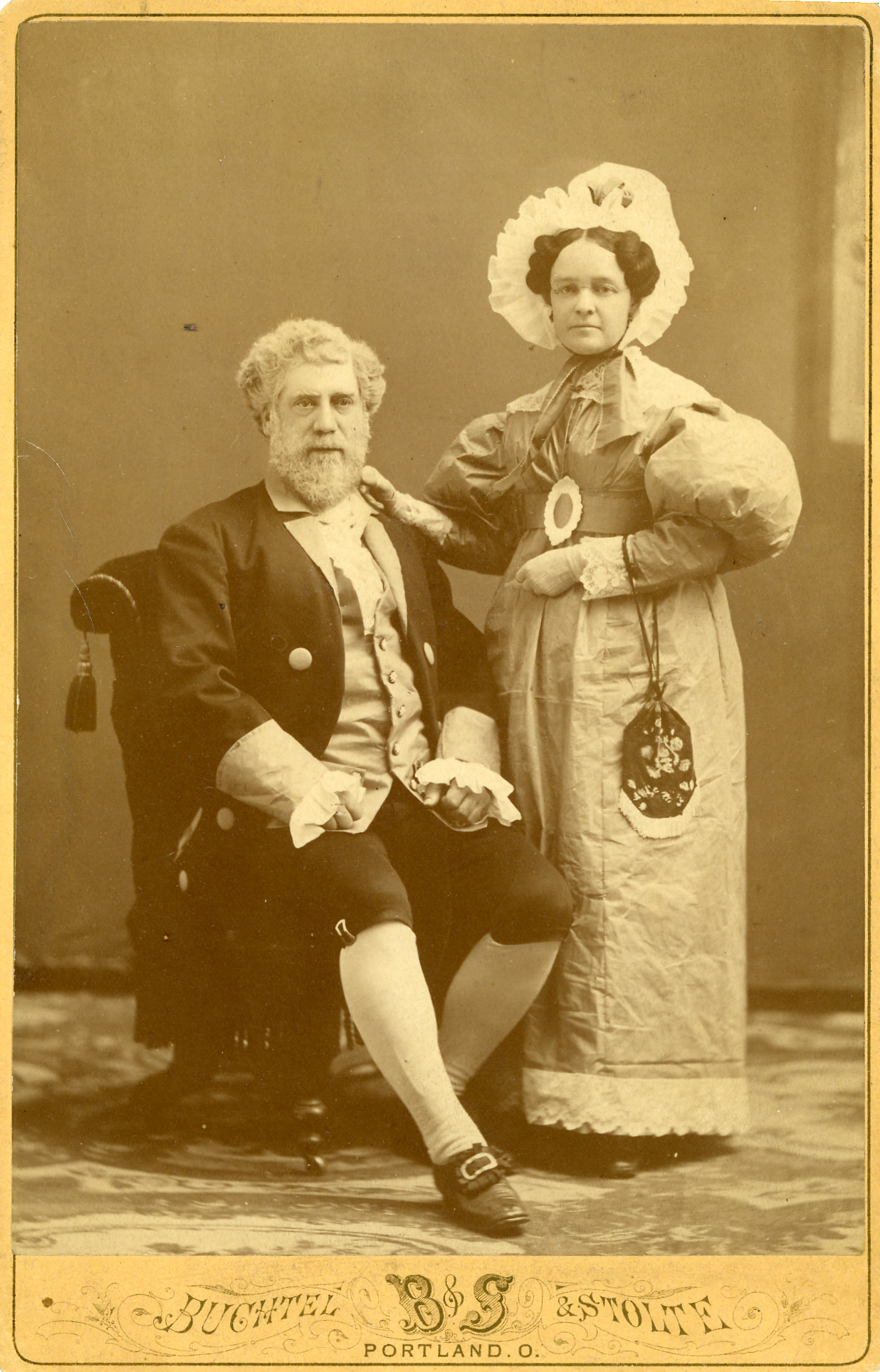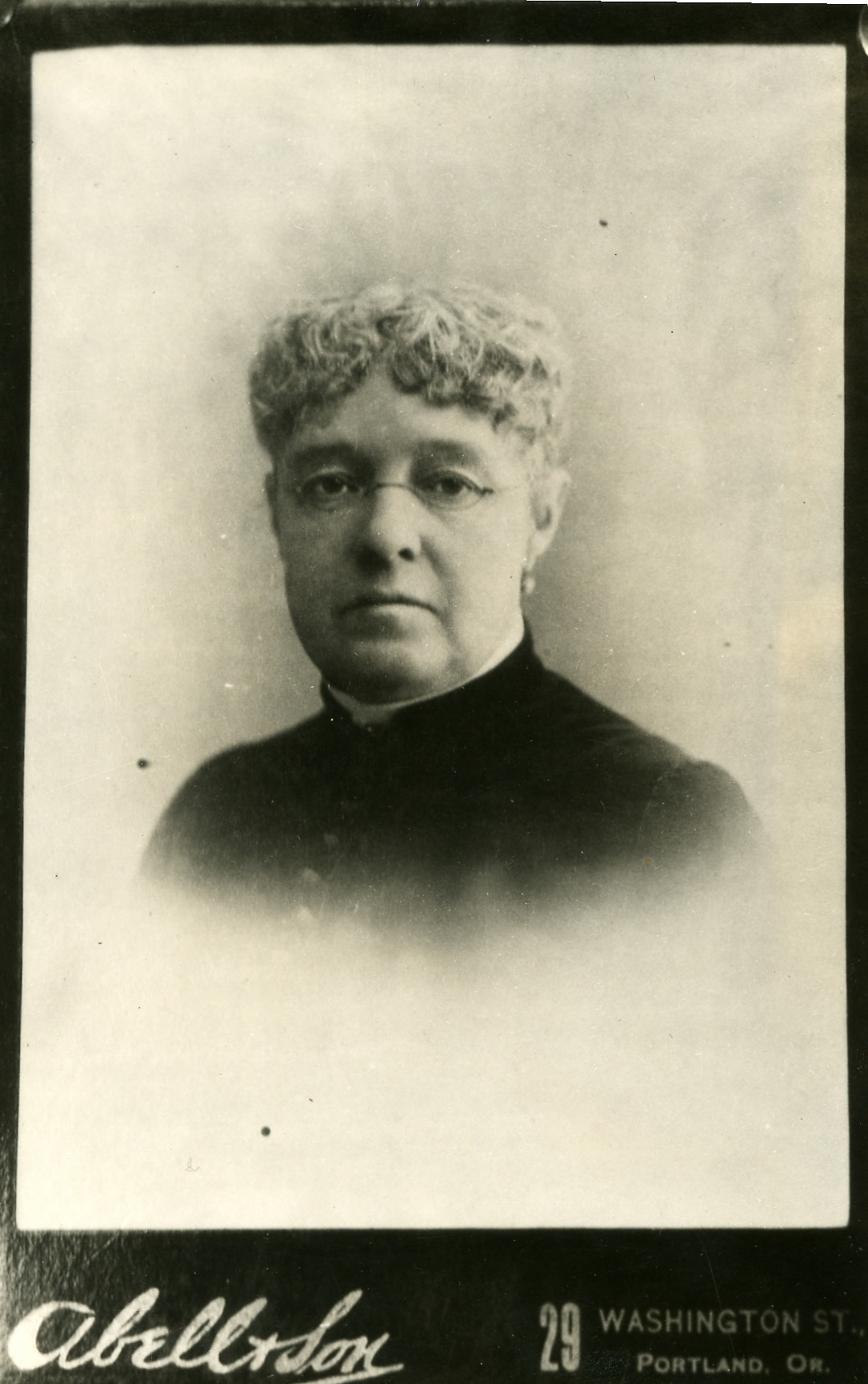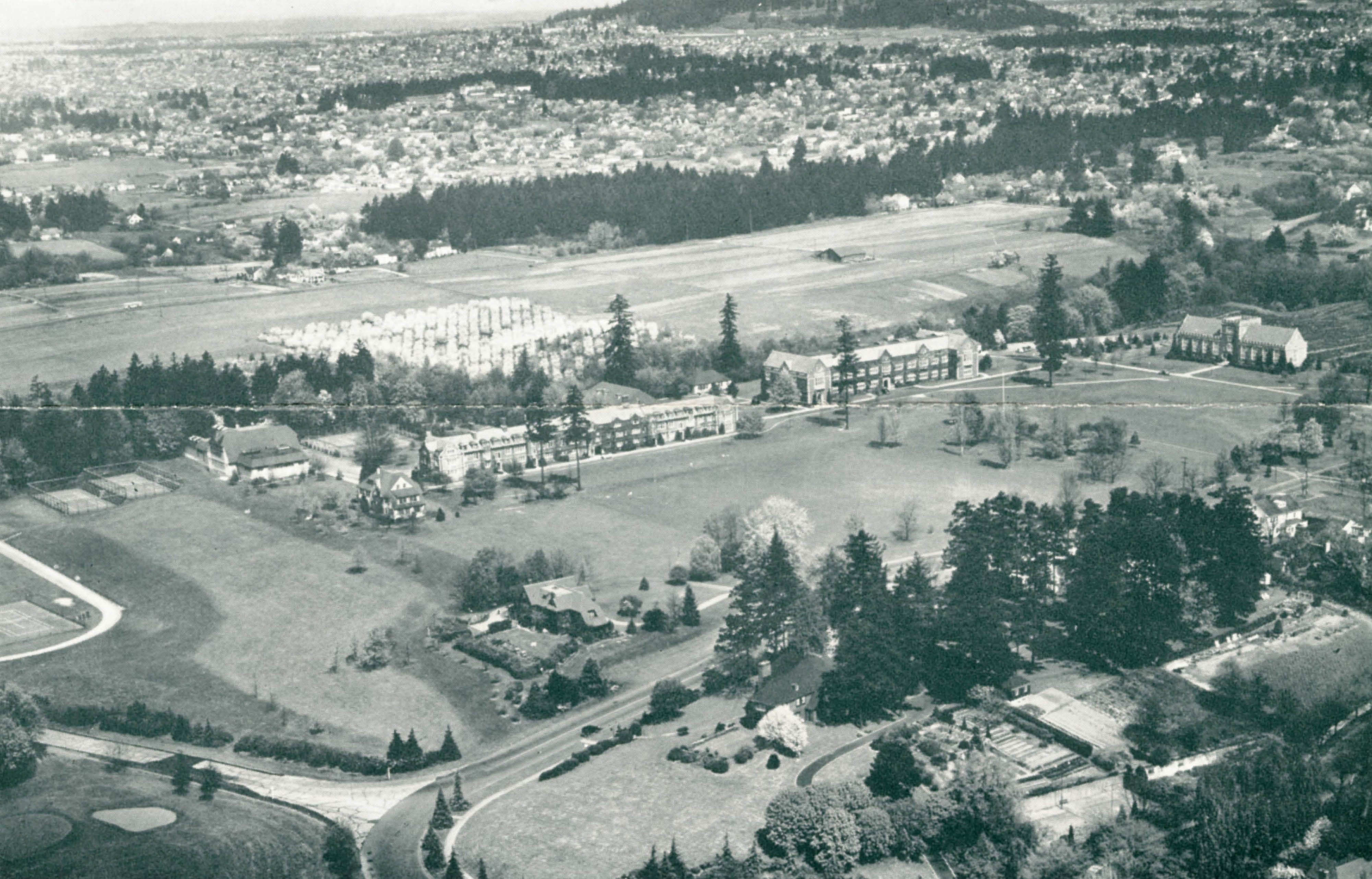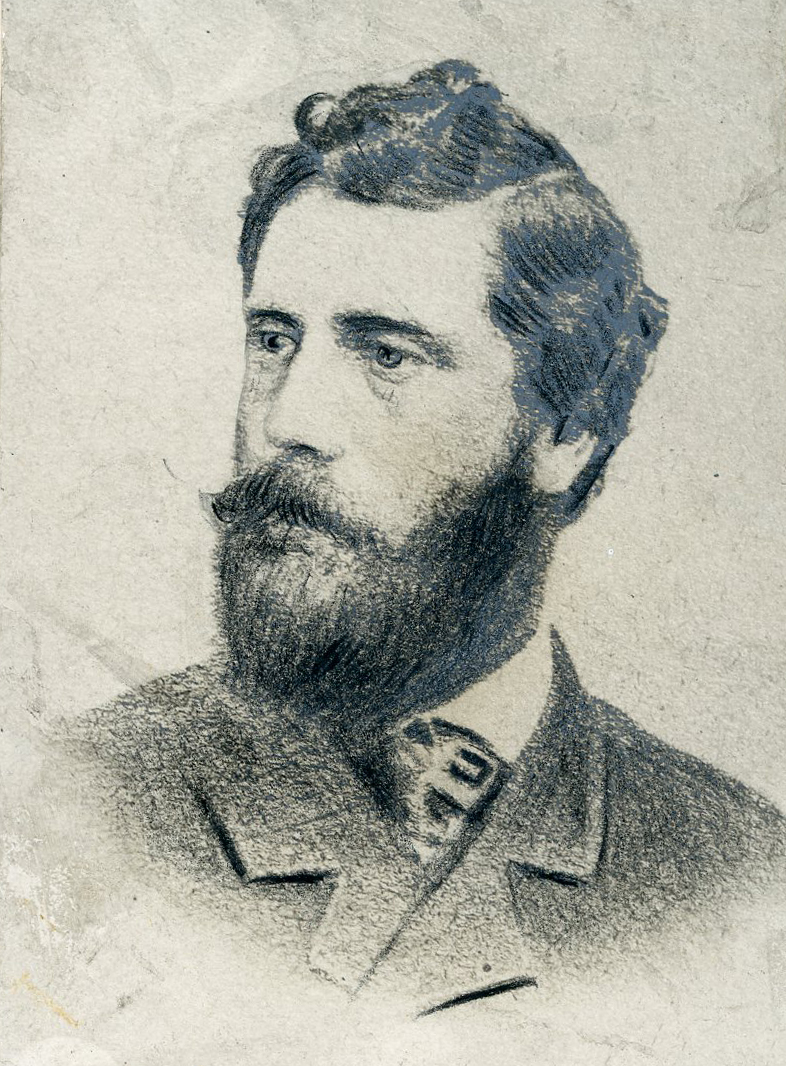Amanda Wood Reed was an early twentieth-century philanthropist and the founder of the Reed Institute in Portland, the legal entity that established Reed College. Her business acumen contributed to building the Reed fortune, the bulk of which was left in her will to benefit the young people of Portland. Reed was an intelligent, enterprising, well-traveled, and generous social leader of the early Portland community, contributing to charities and social causes that mostly benefited children. With her husband, Simeon Reed, she planned for the development and expansion of the city and its culture.
Amanda Wood was born near Boston in Quincy, Massachusetts, on August 26, 1832, to Henry Wood and Sarah Adams Wood. A descendant of Henry Adams and Presidents John Adams and John Quincy Adams, she was educated at home by tutors. Her father owned the local quarry, and hers was one of the wealthiest and most prominent families in the town. On October 17, 1850, she married Simeon Gannett Reed (1830–1895) in Quincy, where they had met. Together, they developed a grain and flour export business.
Seeking new economic opportunities, Simeon Reed left Quincy in the spring of 1852 for San Francisco and then headed north to buy lumber in Oregon Territory, where he believed a young man could establish himself. Finding no lumber to purchase, he instead bought flour, which he resold in San Francisco at a good profit. He returned to Oregon the next spring and started a general merchandise store in Rainier. Amanda joined him in 1854, and the couple moved to Portland.
Over the next twenty-five years, the Reeds invested in merchandising stores, steamboats, silver lead mines, livestock breeding farms, electric railways, an iron and steel company, and real estate. Amanda Reed had a strong business sense and advised her husband in his business dealings, managing the financials. She also selected many of the "black mitts, cambric cloth, prints and parasols, babinette lace, bonnet trimmings, razor straps, blue mugs, whiskey, cod-fish, and general groceries" sold in their stores. They invested their profits wisely and managed their assets. Amanda Reed administered the domestic affairs of the household, keeping careful records, especially her handwritten recipe cookbook, and she counseled her husband in social decisions.
The Reeds were happy in their residences, and historian Dorothy Johansen described their home as a center of "hospitality, laughter, and brightness." During the 1860s, they lived in Doland’s boarding house on A Street, moved through a progression of homes, and then settled in a palatial mansion on First Avenue and Montgomery Street, built by architect H. W. Cleaveland in the 1880s. In 1871, twelve-year-old Martin Winch—Amanda’s nephew and the son of her sister, Frances Wood—came to live with the Reeds after his father had died. Martin became the business protege of his 'Uncle Sim' and Aunt Amanda.
The Reeds ascended to high society in Portland, entertaining frequently, attending operas and musical theater, and riding in a well-appointed coach. In 1879, they made a Grand Tour of Europe with Simeon’s half-brother, Edward P. Reed, and Amanda accompanied Simeon on hunting and fishing trips. She also traveled with him on Oregon Steam Navigation Company steamboats, which the Reeds invested in. In the early years of their marriage, Amanda had sewn her own dresses, but by 1892 she was consulting the Parisian dressmaker recommended by actress Lillian Russell, a sign of their prosperity.
Because of Amanda Reed’s religious preferences, the Reeds were benefactors of the First Unitarian Society of Portland, and both sang in the choir. They had no children of their own and were motivated to direct much of their philanthropy toward causes that benefited young people. Over her lifetime, Amanda supported the Boys and Girls Aid Society, the Baby Home, the Patton Home, Portland Free Kindergarten, Portland Home for Orphans, Refuge Home for Women, Portland Women’s Union, Good Samaritan Hospital, the Homeopathic Hospital and Dispensary, and the Old Ladies’ Home.
Reed also supported public education and gave generously to the Portland Library Association and the People’s Free Reading and Library Association, believing that people could educate themselves through reading. Her philanthropy for women's and children's health care was partially motivated by the Social Gospel movement espoused by Portland churches, her strong sense of social justice, and the influence of Thomas Lamb Eliot, their Unitarian minister. "Amanda Reed was the yin to Simeon's yang,” Ted Katauskas wrote in 2011, “petite, reserved, a homebody who shunned ostentation [and] delighted in the laughter of children."
In 1885, Martin Winch became the manager of the Reed businesses when Simeon semi-retired, yet Amanda remained involved in oversight, checking the financial books and even selling the couple’s racehorses. After Simeon’s death in 1895, she oversaw their investments and the completion of their winter house in Pasadena, California, which they had started in 1892 and called Carmelita.
The Reeds had discussed establishing a college to educate the youth of Portland, and after Simeon’s death Amanda Reed directed in her will that the bulk of her estate—$1.8 million (about $53 million in 2024 dollars)—be used to establish and maintain “an institution of learning, having for its object the increase and diffusion of practical knowledge among the citizens…and or the promotion of literature, science, and art.” Reed Institute, she directed, was to be established in her husband’s memory. She appointed Winch as her executor.
Amanda Wood Reed died at Carmelita on May 16, 1904, and was buried at Riverview Cemetery in Portland. Winch carried out Reed’s wishes, defending her will when the estate was challenged by self-interested relatives a year after her death. Courts in Oregon and Los Angeles upheld the will, and Reed Institute was incorporated on June 17, 1908. The Institute opened Reed College in 1911.
-
![]()
-
![]()
-
![]()
Amanda Reed, c. 1850.
Courtesy Special Collections and Archives, Eric V. Hauser Memorial Library, Reed College -
![]()
Amanda and Simeon Reed, 1854.
Courtesy Reed College -
![]()
The Reed's library in their Portland home, c.1870s.
Courtesy Special Collections and Archives, Eric V. Hauser Memorial Library, Reed College -
![]()
Residence of Simeon and Amanda Reed, Portland. c. 1878.
Courtesy Special Collections and Archives, Eric V. Hauser Memorial Library, Reed College -
![]()
Simeon and Amanda Reed, 1880.
Courtesy Special Collections and Archives, Eric V. Hauser Memorial Library, Reed College -
![]()
-
![]()
Amanda Reed (holding dog) in California, c. 1900s.
Courtesy Special Collections and Archives, Eric V. Hauser Memorial Library, Reed College -
![Ariel view of Reed College, 1940]()
Reed College, 1940.
Ariel view of Reed College, 1940 Courtesy City of Portland, a2004-002-879
Related Entries
-
![Oregon Steam Navigation Company]()
Oregon Steam Navigation Company
Among early business enterprises in Oregon, the Oregon Steam Navigation…
-
![Portland Women's Union]()
Portland Women's Union
The Portland Women’s Union was the first all-women volunteer organizati…
-
![Reed College]()
Reed College
Situated on 116 acres in southeast Portland, Reed College enrolls nearl…
-
![Simeon Reed (1830–1895)]()
Simeon Reed (1830–1895)
Simeon G. Reed was a prominent citizen and businessman in Oregon during…
-
![Thomas Lamb Eliot (1841-1936)]()
Thomas Lamb Eliot (1841-1936)
Thomas Lamb Eliot was one of the most influential clergymen in the hist…
-
![William Trufant Foster (1879–1950)]()
William Trufant Foster (1879–1950)
William Trufant Foster was the first president of Reed College, which w…
Related Historical Records
Map This on the Oregon History WayFinder
The Oregon History Wayfinder is an interactive map that identifies significant places, people, and events in Oregon history.
Further Reading
Simeon and Amanda Wood Reed papers, 1864-1931. Mss 1117, Oregon Historical Society Research Library, Portland.
Simeon Reed and Amanda W. Reed papers, 1823-1916. Mss Reed Simeon & Amanda, Reed College, Portland.
“Comrades of the Quest.” Reed Magazine 91.2 (June 2012).
“Mrs. S.G. Reed is Dead.” Portland Oregonian May 18, 1904, p. 14.
“Fighting for Amanda’s Dream.” Reed Magazine 90.1 (March 2011).

